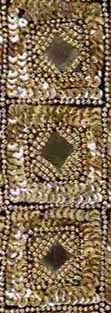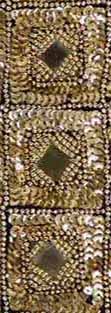~~~~~~~
These two
contemporaries, Sana'ullah Dar 'Miraji'
(1912-1949) and Gajanan Madhav 'Muktibodh'
(1917-1964), moved beyond the Progressives'
political ideology, but did they ever entirely
renounce its concerns? Both were controversial in
their time; both had difficult lives and major
health problems; both died young. Their attempts
to grapple with the Progressive movement--and with
their own Sufi/bhakti heritage--helped to shape
modern literary movements in Urdu and Hindi.
~~~~~~~
Saturday March 30, 2019, 10:30-3:30
Columbia University, Knox Hall, room 208
===========
The workshop is sponsored by the South Asia Institute and
the Department of Middle Eastern,
South Asian, and African Studies, Columbia
University. It is free and open to the public,
but advance registration is required.
Registration will be possible starting one month
before the workshop:
*REGISTRATION FORM*
===========
Workshop schedule:
10:00-10:30 coffee
10:30-12:30: reading and discussion
12:30-1:30: lunch
1:30-3:30: reading and discussion
===========
SELECTED
MATERIALS FOR THE WORKSHOP
As much as possible,
materials in the workshop packet will be
available in both scripts, and/or in
transliteration. Packets will be
available in hard-copy form at the workshop
itself, and in pdf form is available right here:
*WORKSHOP
PACKET*
(Our packets will be double-sided; if
you prefer single-sided, you might want to print
one out for yourself)
===========
GENERAL STUDY MATERIALS
About a
recent Asia Society exhibit on the *"Progressive Artists' Group"*
The Wire, *"Where is Urdu Progressive
Writing Today?"* (a discussion, Sept.
2018)
On Miraji:
*A brief
biographical sketch*
Geeta Patel,
Lyrical Movements, Historical
Hauntings: On Gender, Colonialism,
and Desire in Miraji's Urdu Poetry
(Stanford University Press, 2001);
pp. 43-80, from "Stories from a
Childhood" (*text*),
and pp. 131-167, "Miraji's Response
to the Progressives" (*text*).
Mehr Afshan
Farooqi, "Modernity in Urdu Poetry
and the Enigma of Miraji," Annual
of Urdu Studies 18
(2003): [site]
POEMS:
Provided
by Krupa Shandilya, Zara
Khadeeja Majoka, and Noor Habib:
'adam ka khala': *Urdu script*;
*transliteration*;
*translation*
'klark ka naghmah-e muhabbat': *Urdu script*;
*Devanagari*
'khud-nafsi': *Urdu script*;
*transliteration*
'jangal men itvar': *Urdu script*;
*transliteration*
'na'i sha'iri ki bunyaden': *Urdu script*;
*selected
excerpts*; *transliteration*
'sahara': *Urdu script*
Miraji's essay on 'sahara': *Urdu script*
'dhobi ka ghat': *Urdu script*;
*translation*
'dukh dil ka daru': *Urdu script*;
*translation*
'pas ki duri': *Urdu script*;
*translation*
~~~~~~~
*samundar
ka bulava* from 'Tin rang',
1968: Urdu (including Miraji's
handwritten text), glossary,
transliteration
*yaganagat*
from 'Tin rang', 1968: Urdu,
glossary, transliteration
*abgine
ke us par ki ek sham*, from
'Tin rang', 1968: Urdu, glossary,
transliteration
*chher*
from 'Tin rang', 1968: Urdu, glossary,
transliteration
*ras
ki anokhi lahren*, collected
only in 'Kulliyat', 1996: Urdu, glossary,
transliteration, translation
*lab-e
ju'ibare*, collected only in
'Kulliyat', 1996: Urdu, glossary,
transliteration
*Kulliyat-e
Miraji*, on the rekhta.org
site
On Muktibodh:
*A brief
biographical sketch*
Lotz, Barbara, *"Long poem or
unending poem? On the
emergence of Muktibodh's
'Andhere mein'"*, Hindi
Language, discourse, writing
vol. 2 (2001), pp. 91-108
POEMS:
Provided by Greg Goulding:
*Special
materials for the packet*
*Andhere men*,
selections; Devanagari and
transliteration
*Brahmarakshas*,
Devanagari and transliteration
*Ek arup shunya
ke prati*, Devanagari and
transliteration
~~~~~~~
*Andhere men*,
full text, and translation by
Krishna Baldev Vaid (2001)
*Excerpts from
'Andhere men', plus 'Chand ka
munh terha hai', 'Bechain chil'*,
texts with translations by Lucy
Rosenstein (2003); also *Rosenstein texts
in transliteration*
*Muktibodh
rachanavali*, 6 vols.
(1980)
===========
Questions or
problems: <fp7@columbia.edu>
===========
~~ *list
of other workshop topics* ~~
*fwp's
main page* ~~



